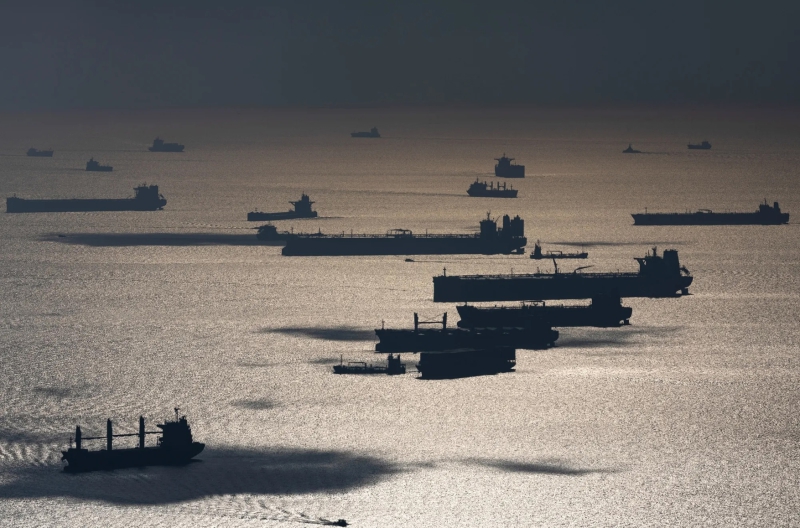Photo: SeongJoon Cho / Bloomberg
The British government has announced 137 new sanctions targeting Russia’s critical energy and oil sectors. The measures are intended to “disrupt the flow of oil money into Vladimir Putin’s war chest” and “strand more of his beleaguered shadow fleet.”
The new sanctions focus on 135 oil tankers identified as part of Russia’s “shadow fleet,” which has illegally transported $24 billion worth of cargo since the start of 2024. Also sanctioned is INTERSHIPPING SERVICES LLC, responsible for registering shadow fleet vessels under the flag of Gabon, and LITASCO MIDDLE EAST DMCC, a Dubai-based trading arm of the Russian oil giant Lukoil.
UK Foreign Secretary David Lammy commented on the moves, saying:
“New sanctions will further dismantle Putin’s shadow fleet and drain Russia’s war chest of its critical oil revenues. As Putin continues to stall and delay on serious peace talks, we will not stand idly by. We will continue to use the full might of our sanctions regime to ratchet up economic pressure at every turn and stand side by side with Ukraine.”
The British government noted that since 2022, Western sanctions have led Russian oil and gas revenue to decline by more than one-third. The statement released by the Foreign, Commonwealth, and Development Office (FCDO) also said sanctions and the cost of the war “are causing the Russian economy to stall — with the wealth fund hollowed out, inflation rising and government spend (sic) on defence and security spiralling.”
However, not all NATO member states are equally committed to depriving Russia of its export revenue streams. On July 21, reports confirmed that Slovak state-owned energy company Slovensky plynarensky priemysel (SPP) plans to purchase up to 100% of its gas from Russia next year. A ban on spot-market purchases by other EU buyers is expected to free up pipeline capacity for Gazprom’s long-term clients, and Bratislava appears intent on taking advantage of the situation before an EU ban on Russian natural gas imports goes into effect in 2027.
Also on July 21 Serbian Energy Minister Dubravka Djedović-Handanović announced that Serbia, Hungary, and Russia have agreed to construct a 128-kilometer pipeline from the Hungarian town of Algyő to Novi Sad in northern Serbia. The project will provide Serbia with access to a branch of the Druzhba pipeline, allowing for Russian crude to be piped into Serbia by way of Ukraine and Hungary.

